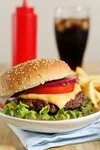 |
Find Your Medication |


Five foods that could increase Nexium need
There are certain foods that are far more likely to trigger indigestion and acid reflux than others.
There are certain foods that are far more likely to trigger indigestion and acid reflux than others. Spicy or acidic foods are commonly thought of in this context, but they aren't the only ones that can have a negative impact on Nexium and gastroesophageal reflux disease (GERD) treatments. Knowing what other foods and vitamins to avoid that are likely to make the digestive system disgruntled is key to making palliative care more effective. Foods rich in Vitamin D3 Probiotic yogurt Anything right before bed Table salt Dark chocolate |
See also ...
- New study suggests Tamoxifen treatment should be extended to 10 years
- Aspirin could slow age-related cognitive decline in women
- Antidepressant may also reduce menopausal symptoms
- Depression causes widespread work absences, studies find
- Paxil may help prevent heart failure
- Melatonin and exercise shown to reduce Alzheimer's symptoms in mice
- New schizophrenia treatment canceled due to poor results
- New osteoporosis treatment successful in mice, study says
- Yale uses biochemistry in an attempt to combat depression
- Scientists say creating an anti-heart disease vaccine could be possible
- Research shows progress toward creating Alzheimer's blood test
- New drug cocktail cures coke addiction in lab rats
- Algae extract may improve cholesterol levels
- There are as many undiscovered drugs as stars in the sky, researchers say
- Researchers develop new test for osteoporosis
- Statin medications may reduce the size of men's prostates
- Researchers find process that leads to development of arthritic condition
- Researchers find new treatment that may quell joint swelling
- Researchers develop new treatment for enlarged prostate
- New study shows antidepressants can alleviate arthritis pain
- Study uses stem cells to treat osteoporosis
- Statins equally as effective in women as men
- Blood sugar monitoring shows little benefit
- Use of cane reduces arthritic knee pain
- Researchers explain how statins may fight breast cancer
- Study pinpoints genetic sign of osteoarthritis
- Researcher talks arthritis cure
- Broad approach of new drug may prevent progression of Alzheimer's
- New osteoporosis medication fails in clinical trial
- Second biopsy may determine efficacy of breast cancer treatments
- New study confirms benefits of Lipitor
- Researchers find why some women are resistant to Tamoxifen
- Researchers work toward new drug to treat BPH
- Researchers discover source of inflammation that leads to arthritis
- Aggressive blood sugar control may provide no benefit for diabetics
- Researchers uncover process that potentially causes arthritis
- Bipolar disorder and schizophrenia share many brain similarities
- Researchers make important finding in drug-resistant breast cancer
- Study findings medication improve BPH symptoms
- Treating acid reflux is possible
- Researchers say treatment for acid reflux is effective
- South Asians are more likely to develop obesity-related health conditions like diabetes, study finds
- Aggressively lowering blood sugar may have few benefits for diabetics
- Stem cell therapy may be the future of osteoporosis treatment
- Controlling acid reflux shown to benefit patients with lung condition
- Nexium users often forced to make tough treatment decisions
- New fertility research might impact those who consume Clomid
- Fertility less affected by new chemo drug is good news for Clomid users
- People taking Nexium for acid reflux may have an�alternate solution
- More natural ways to cure the blues helps Effexor usefulness
| IMPORTANT DISCLOSURE: All medical content and news articles on this website is supplied by an independent third party company. While the information can be useful, this website relies on others for its creation and cannot guarantee the accuracy, medical efficacy, or reliability of the information provided. In all circumstances, you should always seek the advice of your physician and/or other qualified health professional(s) for drug, medical condition, or treatment advice. This website does not provide any medical advice. The content provided on this website is not a substitute for professional medical advice, diagnosis or treatment. |
- Terms & Conditions
- |
- Privacy Policy
- |
- Shipping Policy
- |
- My Account
- |
- Refill Prescription
- |
- Product Search
- |
- How to Order
- |
- Customer Service
- |
- About Us








